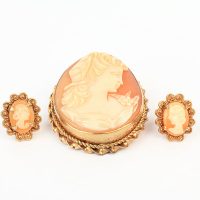Estate Planning And Family Heirlooms

When we create state plans, we understandably account for the things that have monetary value. These are the things that we believe that our beneficiaries will want, and potentially, may even fight over, if they aren’t left to them in the proper and equitable way.
But in planning this way, it’s easy to overlook the value of family heirlooms. Because these treasured items may have nominal monetary value, they tend to get overlooked. We often just think of them as pieces that we display or store, without considering how special they may be to our loved ones.
Difficulties With Heirlooms in Estate Plans
It can be hard to account for family heirlooms in an estate plan for a number of reasons.
One reason is that different family members may have differing opinions on what an heirloom actually is; an heirloom of immense value to one family member may have little or no significance to another.
To the extent an heirloom may have some real monetary value, appraising or evaluating that object may be difficult—heirlooms are often specialized antiques that take specific appraisers to value.
Another problem with heirlooms is that they can’t be sold to divide the profits. Their value is in the item itself. That means that when multiple family members may want an heirloom, that particular object can only be left to one beneficiary or another.
Naming the Heirlooms
When inventorying all of your property, how will someone know by looking, what is an heirloom, and what is just normal personal property?
That means that your estate plan should take care to specifically inventory and identify those items that you are considering to be heirlooms, so that they don’t get lumped in with other, less valuable or meaningful property.
Open Communication
If you are going to leave an heirloom to one beneficiary, it’s good to discuss this with any other beneficiaries in advance. This will avoid the possibility of infighting, confusion or hostility later on. If you think beneficiaries may fight over money or valuable property, they may be even more inclined to fight over things that have sentimental, family value.
Have You Considered a Trust?
Of course, if it is an heirloom, you may want that heirloom to remain in your family for a long time. That may mean putting the property in a trust, and having a trustee administer it, where you can put conditions on the property, such as not selling it or destroying it. You can even alternate beneficiaries—for example, the trust terms can say one beneficiary gets the heirloom for one year, and another beneficiary gets it for another year.
The trust will also avoid the item being subject to the probate court, where privacy concerns, and legal fees, may add up. More importantly, if those heirlooms do have value, probate courts could subject them to creditor claims, which can be avoided by using a trust.
Let us help you account for all your assets in your estate plan. Call the Torrance probate will and estate attorneys at Samuel Ford Law today.
Source:
ml.com/articles/the-hard-assets-side-of-estate-planning.html
